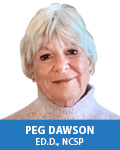 Important Notice:
Important Notice:
Online registration is now CLOSED for this conference. You can arrive up to one hour early to register at the door.
Workshop Aide positions are still available. For more information: Click Here
Presented by Steven G. Feifer, D.Ed., ABSNP and Christine Dargon, Ph.D. and Steven T. Olivas, Ph.D., HSP and Rebecca Moyes, M.Ed. and Eboni Webb, Psy.D., HSP and Meghan Barlow, Ph.D. and Monique Gray Smith and Peg Dawson, Ed.D., NCSP
Monday, May 13, 2019 – Wednesday, May 15, 2019 | Saskatoon, sk
Online registration is now CLOSED for this conference. You can arrive up to one hour early to register at the door.
Workshop Aide positions are still available. For more information: Click Here
Please note, there have been changes made to the line up. Please see the event page for the most up to date information.
Monday, May 13, 2019 – Wednesday, May 15, 2019
9:00am to 4:00pm
Hilton Garden Inn Saskatoon Downtown
90 22 St E, Saskatoon, SK S7K 3X6
phone: (306) 244-2311
Emotional Disorders
Workshop #1 – The Neuropsychology of Emotional Disorders: A Framework for Effective Interventions by Dr. Steven Feifer, D.Ed,. ABSNP. Internationally renowned speaker and author in the field of learning disabilities. Employed as a psychologist at Monocracy Neurodevelopment Centre, Frederick, M.D.
Anxiety Disorders
Workshop #2 – Overcoming Anxiety Disorders in School-Age Children by Dr. Christine Dargon, Ph.D. International speaker, educator and author. On faculty at Grand Canyon University and Ashford University.
Brief Interventions
Workshop #3 – Over 30 Proven and Effective Brief Interventions for Students with Emotional and Behavioural Problems by Dr. Steven T. Olivas, Ph.D. Nationally-renowned speaker, author, behaviour consultant and licensed psychologist in private practice in Nashville, Tennessee
Reading and Written Language Disorders
Workshop #5 – The Neuropsychology of Reading and Written Language Disorders: A Framework for Effective Interventions by Dr. Steven Feifer, D.Ed,. ABSNP. Internationally renowned speaker and author in the field of learning disabilities. Employed as a psychologist at Monocracy Neurodevelopment Centre, Frederick, M.D.
Behaviours Associated with Disabilities
Workshop #6 – Is it Disability Behaviour or Just Disruptive Behaviour by by Rebecca A. Moyes, M.Ed. Former general education teacher, author, consultant to school districts for students with emotional disturbance, autism and/or severe behaviours
Self-Regulation
Workshop #7 – Rescuing the Dysregulated Child by Eboni Webb, Psy.D. Owner of Kairos Mental Health Cooperative in Nashville, Tennessee. Serves as an advisor to the Dialectical Behaviour Therapy National Certification and Accreditation Association
Resilience and Indigenous Children
Workshop #8 – Strategies for Fostering Resiliency with Indigenous Children by Monique Gray Smith, International presenter, award winning author and consultant. Owner of Little Drum Consulting and former Executive Director for Aboriginal Head Start Association of BC and the National Aboriginal Advisor for Roots of Empathy.
Smart but Scattered: Building Executive Skills
Workshop #9 – Smart but Scattered: Strengthening Executive Skills in Children and Adolescents by Margaret Dawson, D.Ed. School psychologist and has worked at the Centre for Learning and Attention Disorders in Portsmouth, New Hampshire. She is international presenter and bell-selling author.
High-Functioning Autism
Workshop #10 – High Functioning Autism: Proven and Practical Interventions for Challenging behaviours with children and adolescents by Dr. Meghan Barlow, Ph.D. Licensed paediatric psychologist specializing in the assessment and treatment of children on the autism spectrum. Owner of a private practice, Meghan Barlow and Associates in West Lake, Ohio.
Education and Clinical Professionals: K–12 Classroom Teachers, School Counsellors/Psychologists, Learning Assistance/ Resource Teachers, School Administrators, School Paraprofessionals including Special Education Assistants, Classroom Assistants and Childcare Workers. All other professionals who support students including but not limited to: Nurses, Social Workers, Psychologists, Clinical Counsellors, Family Therapists, Occupational Therapists, Speech Language Pathologists, Addiction Counsellors, Youth Workers, Mental Health Workers, Probation Officers, Police Officers, and Early Childhood Educators.
Parents, Caregiver, Foster Parents, Grandparents, and Extended Family raising a child.
9:00am -4:00pm May 13, 2019
This workshop will explore the neural architecture of emotional behaviour by examining various brain structures laying the foundation for higher level social skill functioning. Specific biological factors related to the development of social competence and emotional self-regulation will be explored. There will be a detailed discussion on behavioural self-regulation, anxiety disorders, and depression from a brain-based educational perspective. Particular focus will be on factors leading to emotional dysregulation and the neurobiological underpinnings of stress. Schools can enhance emotional wellness in children through early prevention efforts, appropriate assessment strategies, and an improved school climate to foster emotional growth for all children.
COURSE OUTLINE:

Steven G. Feifer, D.Ed., ABPdN is dually trained as both a nationally certified school psychologist and board certified pediatric neuropsychologist, having completed research stints at the National Institutes of Health. Dr. Feifer has earned numerous distinctions throughout his career including…
9:00am - 4:00pm May 13, 2019
Other co-occurring disorders (e.g. behaviour problems, medical conditions, depression, ADHD, learning disabilities, selective mutism) will also be discussed. Emphasis will be on creative interventions involving insight- oriented, cognitive-behavioural, biological, mindfulness, expressive arts and family systems approaches.
COURSE OBJECTIVES:
COURSE OUTLINE:
Nature and Causes of Anxiety
Seven Key Anxiety Disorders
Co-Occurring Disorders
Therapeutic Approaches
Interventions and Self-Regulation Strategies

Christine Dargon, Ph.D., Christine is a retired psychologist. She continues her work teaching as college faculty for almost 30 years at two universities. She consults and now owns a health and wellness center, with two locations in Northern AZ, focusing…
9:00am - 4:00pm May 13, 2019
COURSE DESCRIPTION:
Over 30 Proven and Effective Brief Interventions for Student with Emotional and Behavioural Problems will guide you through focused, clear and proven approaches to working with children and youth. Every professional who seeks to fill their toolbox with tested methods will leave this seminar with a wealth of fresh ideas and rejuvenated spirits. With nearly 30 years of clinical experience and a background in improvisational comedy, Dr. Steve is a strong proponent of “Edu-tainment”. He uses wit and humour to enhance your learning experience, improving the retention and utilization of the skills covered. You will leave this workshop with new strategies for success and techniques to revitalize your interactions with students.
COURSE OBJECTIVES:
COURSE OUTLINE:

Steven T. Olivas, Ph.D., HSP, is a Licensed Psychologist in Private Practice in Middle Tennessee. He began his practice career in 1991 when ADHD was exploding onto the scene, and has enjoyed working with the energy and spontaneous creativity of children ever…
9:00am -4:00pm May 14, 2019
This workshop will examine reading and written language disorders from a brain-based educational perspective, and classify both dyslexia and dysgraphia into distinct subtypes. There will be a detailed discussion linking each learning disorder’s subtype with scores of evidence-based interventions. Four universal truths when teaching reading will be shared, in addition to five essential steps for effective written language instruction. The use of neuropsychological assessment addressing multiple cognitive constructs that underscore literacy will be featured. For instance, the role of phonological processing, orthographic processing, working memory, language and motor skill development, and executive functioning will be discussed as being crucial for effective literacy skills to emerge. Lastly, the “90-minute” learning disorders evaluation highlighting the Feifer Assessment of Reading (FAR) battery will be introduced as a more effective means to both identify and remediate language-based learning disabilities in children.
9:00am - 4:00pm May 14, 2019
Both educators and parents struggle with what to do with difficult behaviour in the classroom and home. Both are often hesitant to provide consequences when a child with special needs exhibits problem behaviours because they are afraid they will be accused of punishing him/her for symptoms that are related to his/her disability. In school settings, there are certain behaviours that are not permitted, and others that impede the child’s or the other students’ ability to learn. Knowing how to appropriately address behaviours is important because any behaviour that is reinforced (either accidentally or on purpose) is likely to continue or escalate. Children with disabilities often exhibit problems with motivation, transitions, task avoidance, sensory processing, social skills, anger, defiance, impulsiveness, and behavioural inhibition, among others. Many children with autism, Asperger’s, ADHD, emotional disturbance, oppositional defiant disorder, Down’s Syndrome, and learning disability exhibit these challenging behaviours. Behind every problem behaviour is something to teach to address a skill deficit and interventions that can help to stop the cycle of difficult behaviour. This full-day workshop will empower educators with practical and evidenced-based strategies to feel competent to appropriately address difficult behaviours associated with disabilities.
COURSE OUTLINE:

Rebecca Moyes, M.Ed., is a former general education teacher in public and private schools. She has served on Pennsylvania Governor Ridge’s Task Force for Autism and was a member of the PA SAFE Project for Verbal Behaviour. She is the author…
9:00am - 4:00pm May 14, 2019
Working with emotionally dysregulated children is an often overwhelming and exhausting endeavour. Many teachers and counsellors feel the pull of being “saviours” for dysregulated children and their parents. How to intervene and steps that can be taken by teachers and administrators will be presented. This training will enable participants to employ strategies in which teachers and parents can experience success through learning to reestablish structure, create a validating and secure environment, and increase compassion for all family members and care providers.
Dr. Webb will additionally address key childhood disorders that left untreated can lead to maladaptive coping behaviours in adulthood. Dr. Webb will teach participants how to apply and adapt various skills training to reflect the language of children and how to establish a safe and supportive classroom in which children can learn and generalize these skills. Working with emotionally-dysregulated children in your classroom can be overwhelming and exhausting. You probably feel the pull of being the “saviour” for dysregulated children and their worried parents. Learn how to implement the skills you need to be more effective in the classroom, avoid burnout and achieve positive outcomes.
COURSE OBJECTIVES:
COURES OUTLINE:
Adapt Dialectical Behaviour Skills Training to Key Childhood and Adolescent Disorders ADHD

Eboni Webb, PsyD, HSP, earned her Doctorate in Clinical Psychology from the Minnesota School of Professional Psychology (MSPP). She began her clinical work as assistant clinical director and program director at Mental Health Systems, PC (MHS), one of the largest providers…
9:00am - 4:00pm May 14, 2019
COURSE DESCRIPTION:
This workshop will provide an in-depth look at the powerful effects of resiliency and strategies for fostering resiliency with Indigenous children. The 4 Blankets of Resiliency: Strong sense of self; family; community; culture, language and connection to the land will be used as a framework throughout the workshop.
Participants will gain a unique understanding of how history continues to impact Indigenous children, youth, families and communities. The effect of stress and trauma and why this may cause addictions, various behavioural disruptions and challenges in attachment will be discussed. Monique will examine the impact of these variables on student wellness and the connection to learning.
Monique will explain unique techniques to weave the 4 Blankets of Resiliency into all aspects of programming to ensure these factors are part of every students learning experience. The ability to nurture and foster resiliency is one of the most profound ways to make a positive difference in student wellness and learning.
Learning Objectives

Monique Gray Smith is a mixed heritage woman of Cree, Lakota, and Scottish descent and is the proud Mom of twins. She is an award-winning author, speaker and sought-after consultant. Monique has been running her business, Little Drum Consulting since…
9:00am - 4:00pm May 15, 2019
Executive function is a neuropsychological concept referring to the cognitive processes required to plan and direct activities. Skills include task initiation and follow through, working memory, sustained attention, performance monitoring, inhibition of impulses, and goal-directed persistence. While the ground-work for development of these skills occurs before birth, they develop gradually through the first two decades of life. But from the moment that children begin to interact with their environment, adults have expectations for how they will use executive skills to negotiate many of the demands of childhood – from the self-regulation of behaviour required to act responsibly, to the planning and initiation skills required to complete chores and homework. Parents and teachers expect children to use executive skills even though they may little understand what these skills are and how they impact behaviour and school performance. The importance of executive skills to overall cognitive functioning first became apparent in work with children and teenagers who had sustained traumatic brain injuries. Problems involving planning and organization, time management, and memory, as well as weaknesses with inhibition and regulation of emotions, have long described a significant component of traumatic brain injury. Executive skills have also assumed an important role in the explanation of Attention Deficit/Hyperactivity Disorder.
This workshop will begin by providing an overview of executive skills, including definitions and a description of the developmental progression of these skills in the first two decades of life. The approach to understanding executive skills presented in this workshop is structured around two key concepts: 1) that most individuals have an executive skills profile that includes both strengths and weaknesses; and 2) by defining executive skills discretely rather than grouping them in broader categories, it is possible to design interventions to address specific deficits that lend themselves to data-based decision making. Workshop participants will gain a deeper understanding both of the model being presented and of their own executive skills profile.
The heart of the workshop will address how to assess executive skills and develop interventions designed to address specific executive skill weaknesses.
COURSE OBJECTIVES:
COURSE OUTLINE:
Part I: Overview of Executive Skills
Part II: Assessment of Executive Skills
Part III: Three Intervention Strategies
Part IV: Coaching as an Effective Strategy for Building Executive Skills

Dr. Peg Dawson: In over 40 years of clinical practice, Dr. Peg Dawson has worked with thousands of children who struggle at home and in school. At the center of their struggles are often weak executive skills. Along with her…
9:00am - 4:00pm May 15, 2019
This intensive, full-day workshop provides proven intervention strategies, essential treatment tools, and behavioural techniques to help you analyze behaviours and actions, identify consequences for behaviours, and teach new skills to children, adolescents and young adults with high-functioning autism (HFA). Walk away with practical intervention techniques for social success, behaviour changes and overcoming challenging co-occurring behaviours that deliver success through adulthood
The challenging co-occurring issues to be addressed are:
Gain valuable insight into how information processing, communication, and social skills deficits lead to difficulty in the home, school, occupational, and social settings. Learn how to prioritize a plan for intervention and implement strategies in order to improve functioning across all areas. We will explore HFA and the new DSM-5® diagnosis of Social- Pragmatic Communication Disorder. You will receive the necessary tools to gain effective collaboration between clinicians, educators and parents.
Through case studies, video clips and class participation you will leave this workshop with an improved understanding of HFA and the confidence to develop and implement effective treatment plans. Don’t just manage these individuals; provide interventions that lead to successful independence into their adult years!
COURSE OBJECTIVES:
COURSE OUTLINE:
DSM-5® and ICD-10 Updates
Social Skills Interventions
Communication Interventions
Sensory Interventions
Anxiety Interventions
Depression Interventions
ADHD Interventions
Obsessive-Compulsive Disorder (OCD) Interventions

Meghan Barlow, Ph.D., is a licensed pediatric psychologist specializing in the assessment and treatment of children, adolescents and young adults on the autism spectrum. She also has a wide range of experience working with children who have a variety of anxiety…
| Registration | Super Early Bird Fee | Early Bird Fee | Regular Fee |
|---|---|---|---|
| Individual 1 Day Enrolment | -- | $249 | $269 |
| Individual 2 Day Enrolment | -- | $449 | $469 |
| Individual 3 Day Enrolment | -- | $619 | $639 |
| Group 3-7 | -- | $599 | $619 |
| Group 8-14 | -- | $579 | $599 |
| Group 15+ | -- | $559 | $579 |
| Full-Time Student | -- | $559 | $579 |
All fees are in Canadian dollars ($CAD).
Fees do not include applicable taxes (5% GST).
Early bird cutoff date: May 9, 2019
The early bird date has passed. Regular rates apply.
Please review our Registration Terms and Conditions for information on our cancellation policy, payment policies, rebates, and more. You must agree to our Terms and Conditions to register for a workshop or conference.
Register Online Download Registration Form (.PDF) Register your Group
All brochures and forms are provided in .PDF format.
If you are unable to open our files, we recommend downloading Adobe Reader for free.
Exhibitors are welcome at this event. We are pleased to offer sponsorship opportunities to businesses and organizations that provide services related to nursing, psychotherapy, addictions treatment, counselling, marriage & family therapy, psychology and other related fields.
→ More information
90 22 St E, Saskatoon, SK S7K 3X6
phone: (306) 244-2311
Our rates:
Call: Please contact the hotel directly for current group rates, when booking please reference “Jack Hirose & Associates”. To make a reservation over the phone, please call 306 244-2311.
Email: Email your reservation request to hgisaskatoon@gmail.com
Double Queen & King Rooms: $159.00 plus tax per night
Parking: $15.95 plus tax
*please note, room reservations are subject to availability*
Please keep in mind when booking Jack Hirose and Associates corporate guest rooms, reservations booked for most hotels can be cancelled within 48 hours. If you are booking guest rooms through third-party websites in many instances the reservations booked cannot be cancelled.
Jack Hirose & Associates is approved by the Canadian Psychological Association to offer continuing education for psychologists. Jack Hirose & Associates maintains responsibility for the program.
† The Alberta College of Social Workers (ACSW) and the Newfoundland and Labrador Association of Social Workers (NLASW) accept CPA-approved CEUs.
* Participants will receive a certificate of completion after every workshop. Workshops are pre-approved for 5.5 or 6 credits per day unless otherwise specified.
Please check back closer to the conference date for more information.
There are no related events at this time.